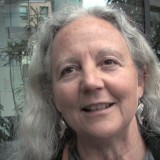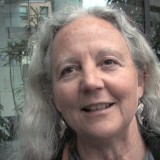As she begins
her tenure as premier, I ask only one thing of Christy Clark—that she will lead
this province into a renaissance of open and honest democratic government.
That’s all.
British Columbia
and its people have been bruised by this government and its secretive,
arrogant, centralized leadership.
Now is the perfect time for the new Premier to heed demands for a
renewal of democracy in B.C. and a change to the way in which politics is done.
How might things
change? Certainly, government
needs to change how it responds to the people. But for the elected MLAs to actually do their job, and to
represent the people as they expect us to do, our political institutions also
need to change.
There are three
broken elements in B.C. politics.
One is the centralization of power and influence—and the resulting
failure to respond to and respect the people. Second is the manner in which the
legislature does its business. And
third is the structure of the party system itself.
We all have
sensed the centralization of power, but what we might not have seen is how that
influences the decisions of government and sets up the reality that the
people—and the opposition—become nothing more than distractions.
And when that
power has an ideology, it naturally listens to those who reflect and can make
that ideology a reality. We saw it with the NDP and we are seeing it with the
Liberals. We are witnessing the remaking of the institutions of government to
serve a corporate citizen.
Power has
responded to industry in many ways:
the Forestry Act was gutted; the Clean Energy Act has centred power in
the Cabinet; the new Water Act contemplates the sale of water licences, which
will mean the eventual control of that resource by industry. Environmental legislation has been
manipulated to favour developers.
Regional land use powers have been stripped. The Oil and Gas Commission is a captured agency with little
legislative control.
And the power to
oversee the use of resources is now centred in one super ministry—a secret
decision made exclusively by the former premier.
We are losing trust
in our institutions. Which means we are losing faith in government. So how might
we stop the unrestricted centralization and abuse of power?
First, the
elected Caucus should choose its leader. That doesn’t mean favour won’t be
curried and the leader won’t exercise power;but it does mean Caucus will have influence and provide a
check and balance to the unrestrained exercise of power. It does mean there is
an internal mechanism that can resist the centralization of decision-making.
A Caucus should be
able to vote secretlyduring
internal debates and the decision of a Caucus must influence Cabinet policy. Secret votes are the only way to ensure caucus members can’t
be influenced by fear or favour as they express the will of their
constituents.
The second issue
is how the Legislature does its business.
Our system is supposedly one where the government is held to account
during question period. Where
legislation is tabled and debated.
Where the Throne Speech is deliberated and where the Budget is reviewed.
It is the forum, supposedly, in which the people are represented.
But in reality,
no one is listening, because no one has to listen.
Except for the
occasional problem a minister takes under consideration not one word spoken in
the legislature has any impact on government. The only impact is through the media, which means the Fourth
Estate – the media – is the actual repository of opposition power.
In this modern
world, with everyone watching and capable of being involved, the Members of the
Legislative Assembly must have influence
if representation is to mean anything.
And that means a substantial change to the legislative committee
structure is critical.
Committees are
creatures of the Legislature. Even
so, they only meet when empowered by a government motion and in fact, most never meet. Environment, Health, Crown Corporations, Education – none has
met since I took my seat in the House.
Rules must
require regular meetings. Committees must be independent of Ministers and able
to set their own agendas. While
the Committee Chairs are ostensibly elected, it is a leader’s decision and that
must change. Committee membership should be an even-number-plus-one of
government members, although I would argue that the very real need for checks
and balances within the parliamentary system make it reasonable to suggest that
the committee majority should lie with the Opposition.
To ensure MLAs are actually able to act as the people’s representatives, the
government should be obliged to accept and
action the recommendations of committee reports. And finally, committees must have the authority to review legislation—and
the government should have to debate in the Assembly why it is not accepting
committee amendments.
These procedural
reforms would change the entire dynamic of the Legislature. It would be a fundamental reform to
representative democracy in B.C. It would create checks and balances within the
system. And to get there, the
Speaker must strike a special committee to recommend the reform of parliament.
Lastly is the
manner in which parties choose their candidates, whether at the riding or leadership level.
Good people
require access to the opportunity to run and that requires both reasonable
spending and contribution levels, which the system imposes during elections,
but which don’t necessarily exist at the party level. This needs to change.
But the other
horror of the system is the membership drive. It is shady and demeaning. The
parties must impose a membership cut-off at the time a vote is set. I have seen people walk into a party headquarters
and deliver hundreds (or thousands) of membership applications and tens of
thousands of dollars – all in one lump drop. Corruption is inherent and the privilege
of a vote is meaningless.
The parties
won’t stop it because it’s money and future fundraising lists. So the individuals who understand the
party’s values, who organize and contribute and who should be determining our
candidates, have to stand and watch an odious process they cannot control.
And the only way
to bring reason to the system is to threaten legislation and oversight by the
Chief Electoral Officer.
Power is a
component of leadership, and change ultimately depends on the responsiveness of
the leader. The people won’t and
shouldn’t tolerate the kind of government we’ve been getting. We need change. And I hope I can
support Premier Clark as she leads us into a democratic renewal of politics in
B.C.
zzz





